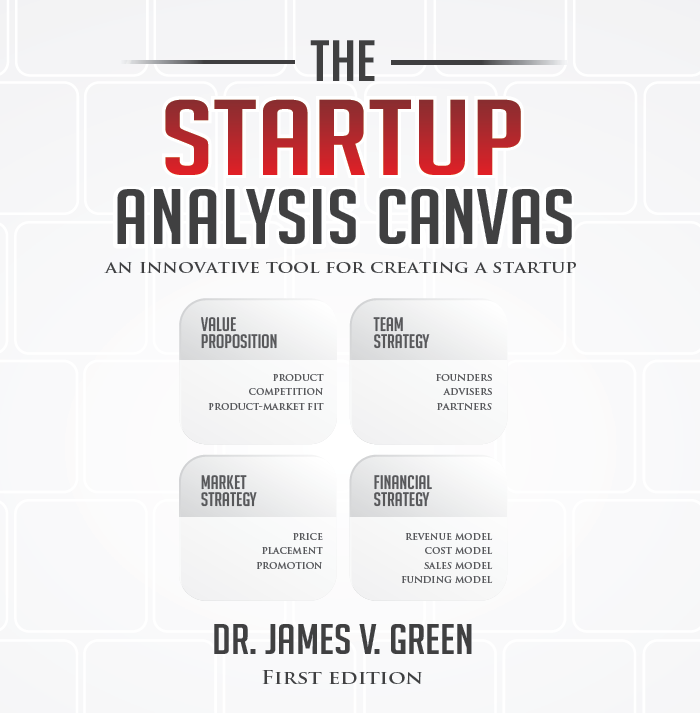The Startup Analysis Canvas was created to guide first-time entrepreneurs that feel ...
- Overwhelmed by the tasks of creating a startup company
- Frustrated with finding the right team at the right time
- Disappointed by the widespread failure of bringing good ideas to market
It’s common for aspiring entrepreneurs to desire ...
- Innovative approaches and tools to help create a startup company
- Intelligence on what customers really want, and are willing to pay for
- Insights on the big picture of crafting a startup company, and how the puzzle pieces fit together
The Startup Analysis Canvas will help you ...
- Understand the theory and practice of value creation
- Determine how to build the right team for your startup company
- Avoid wasting time with startup ideas with limited commercial potential
- Raise the right financial capital at the right time for the right purpose
By the end of this book, you will be positioned to ...
- Effectively design value propositions that directly align with your target customers’ interests
- Assemble and lead an well-comprised team to produce results that create value for your customers
- Pursue big ideas that really matter to customers
- Craft a financial model that minimizes risks and maximizing your success
Each chapter aligns with the key topics of the startup analysis canvas.
The Startup Analysis Canvas provides a model for you to create your value proposition, team strategy, market strategy, and financial strategy. This is the tool at the center of this book. It makes building a startup visible and tangible, and thus easier to design and manage with chapters dedicated to each topic.
1.0 Introduction - Page 1
1.1 How to Build a Startup - Page 8
1.2 The Startup Analysis Canvas - Page 14
2.0 Value Proposition - Page 16
2.1 Problem - Page 28
2.2 Competition - Page 46
2.3 Product-Market Fit - Page 52
3.0 Team Strategy - Page 62
3.1 Founders - Page 74
3.2 Advisers - Page 88
3.3 Partners - Page 96
4.0 Market Strategy - Page 106
4.1 Price - Page 118
4.2 Placement - Page 132
4.3 Promotion - Page 144
5.0 Financial Strategy - Page 156
5.1 Revenue Model - Page 166
5.2 Cost Model - Page 174
5.3 Sales Model - Page 182
5.4 Funding Model - Page 192
6.0 Next Steps - Page 200


